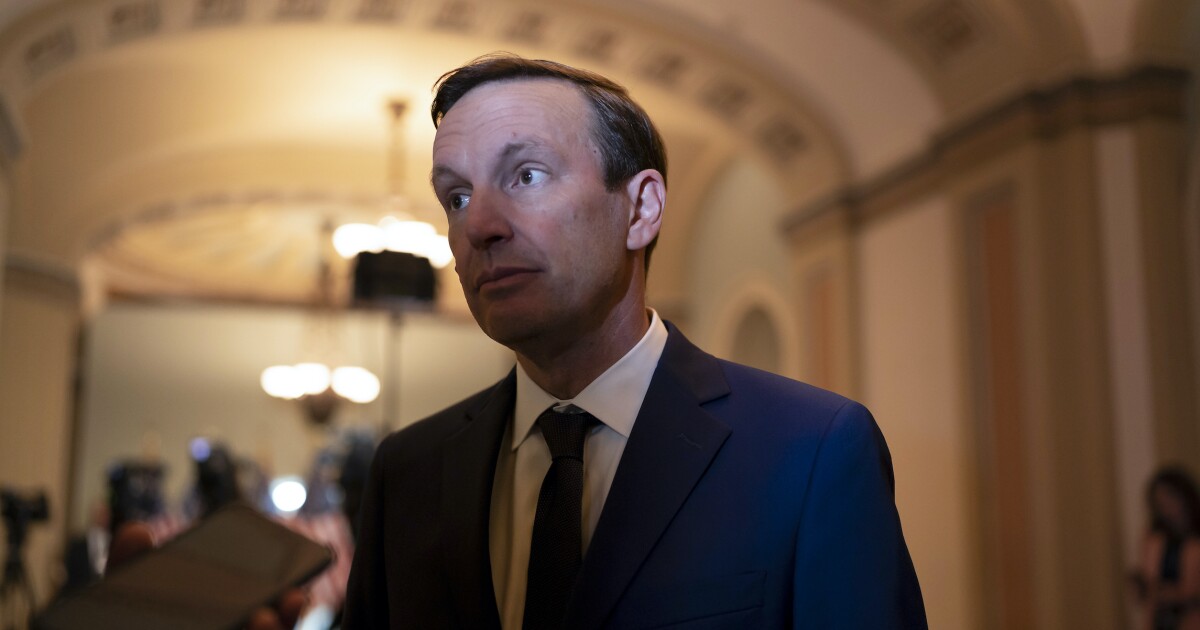

Democrats have become reluctant negotiators in a fight over the border as Senate Republicans leverage Ukraine aid to extract policy concessions.
President Joe Biden has requested $14 billion to address the record flow of migrants under his watch, yet Republicans have rejected the request as a “fig leaf” void of policy changes that would solve the border crisis.
WHAT THE GOP CAN LEARN FROM 2023
Under normal circumstances, Democrats could largely ignore this criticism — Republicans have limited leverage without control of the White House or Senate. But the threat to Ukraine aid, posed by House Republicans wary of Biden’s open-ended commitment to the war, has sent Democrats rushing to the negotiating table.
For now, those talks are focused in the Senate, where leadership hopes to head off the conflict with a grand bargain — $61 billion for Ukraine in exchange for border reforms. House Speaker Mike Johnson (R-LA) is open to such a compromise.
A bipartisan working group has been engaged in rolling conversations that began in earnest Wednesday night, two days after Senate Republicans laid out their demands in a sweeping border proposal first reported by the Washington Examiner.
Democrats quickly rejected the proposal as a “nonstarter” that borrowed too heavily from the House’s “radical” border bill. But they are nonetheless confronting the reality that some price will need to be paid to placate conservatives and support Ukraine.
“I think it’s terrible that we’re in the position we’re in,” said Sen. Chris Murphy (D-CT), one of the lead negotiators for Democrats. “I wish Republicans were not holding Ukraine aid hostage to this very difficult domestic issue. But, you know, we were talking all through the night and talking all day today, trying to find a path forward of limited immigration reforms that respect both Democratic and Republican priorities.”
Those reforms will almost surely include changes to asylum law, with a higher screening standard for “credible fear of persecution” at the top of Republicans’ list. Barring asylum for migrants who have passed through a third country on their way to the United States is another priority.
Democrats have their own asks, even if they won’t state them publicly. Protections for “Dreamers” is important to leadership, yet Republicans have called anything that ventures outside of border security dead in the water.
“We don’t have any promise of that,” Majority Whip Dick Durbin (D-IL) said of the Deferred Action for Childhood Arrivals legislation he’s spent years championing. “We’ll see. I’d like to see it included.”
Murphy himself has cautioned against the idea of some “2013-style, broad, comprehensive immigration proposal.” He is generally pessimistic about a deal coming together at all.
“This is going to be much more targeted,” he added.
That, in part, reflects the urgency of the situation. Senators don’t want to jeopardize Ukraine funding over lofty goals on immigration. Any sort of border deal is a gamble, considering Congress has failed time and again to pass meaningful reforms.
But it also reflects the dynamic in the House, where conservatives will revolt if one of their top legislative priorities is viewed as some sort of amnesty. Johnson won’t move legislation that doesn’t attract a majority of his conference.
That means Senate Democrats must give House Republicans enough of a win to get Ukraine aid across the finish line while keeping their own ambitions in check.
That cuts both ways. Senate Republicans can only ask for so much while in the minority.
Sen. James Lankford (R-OK), the lead Republican negotiator in border talks, says their proposal, while patterned after the House bill, intentionally omitted certain provisions the White House found objectionable, such as restrictions on the CBP One app abused by cartels.
“We said, ‘Great, goodwill, we’ll cut those things out immediately,'” he said. “We did not start with a caustic package.”
The final product, however, may be far more modest.
“We’re not drafting a bill off of their proposal,” Murphy said. “That proposal is helpful because it shows us what they care about. We brought a set of issues to the table we care about, and we will try to craft something in between.”
Sen. Thom Tillis (R-NC), another GOP negotiator, is targeting some combination of policy changes that will reduce the flow of illegal border crossings by more than 50%, though he declined to get into specifics.
That won’t satisfy border hawks, who want the original proposal or something close to it. But his goal is to bring more than half of his conference on board.
If talks fall apart — Murphy has called the odds of success a “triple bank shot” — Democrats fear what it could mean for the fate of Ukraine, which has degraded Russia’s military across 20 months of conflict.
“Putin thinks he’s losing on the battlefield in Ukraine right now. He believes that,” said Sen. Michael Bennet (D-CO), also in the border working group. “The battlefield he thinks he can win on is Capitol Hill. And he thinks that the dysfunction here, the partisanship here, is going to end up in a world where we are not funding Ukraine.”
“We can’t let that happen,” he added.
Most Senate Republicans share that sentiment despite the isolationist streak in their conference. Chief among them is Minority Leader Mitch McConnell (R-KY), who has staked his legacy on Ukraine’s success.
CLICK HERE TO READ MORE FROM THE WASHINGTON EXAMINER
For this reason, the border demands are a means to a larger end rather than a pure power play. Republican leadership has a common goal with Biden even as they work at cross purposes.
Talks are expected to continue over the weekend, with Murphy predicting a deal could be reached by Thanksgiving.






